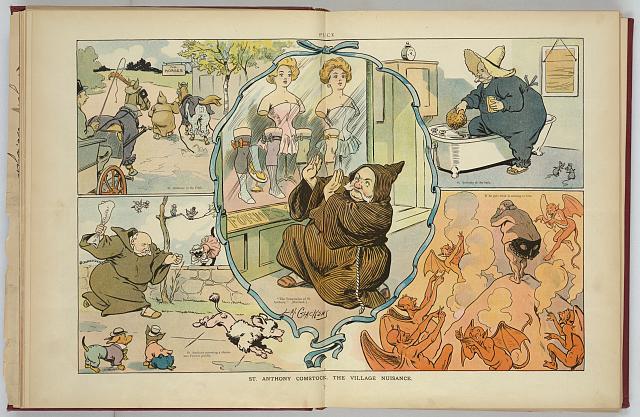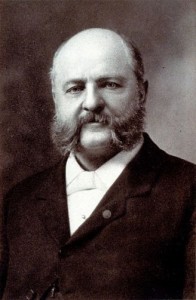The federal Comstock Law of 1873 made it illegal to sell or distribute materials that promoted contraception or abortion, to send literature or materials pertaining to these subjects through the United States Postal Service, or to obtain them from overseas. Legislators passed the law hoping to mitigate the influence of obscene materials on the morality of the general population as well as to stem the growing practice of couples engaging in pre-marital sex. In addition, using contraception allowed women greater presence in the workplace, which many felt posed a threat to both traditionally gendered spheres of influence and the institution of marriage. In the wake of the Comstock Law, Connecticut passed its own state law in 1879 that carried the anti-contraception movement further than any other state in the country.
Female Workforce Delays Childbirth
Late in the 19th century, the industrial revolution made large numbers of jobs available to both men and women. As a result, many women put off having children to focus on their professional careers. Lobbyists like Anthony Comstock of the New York Society for the Suppression of Vice feared the impact these decisions had on male dominance in the workplace as well as in promoting demographic shifts that might cause the “upper-classes” in the country to become a minority.
Comstock successfully lobbied Congress to pass An Act for the Suppression of Trade in, and Circulation of, Obscene Literature and Articles of Immoral Use, better known as the Comstock Law. Shortly after, states began taking it upon themselves to pass their own versions of anti-obscenity and contraception laws.
Connecticut Passes Obscenity Law; Bans Contraceptives
On February 7, 1879, Senator Carlos Smith of New Haven introduced a bill to the Connecticut state legislature entitled, An Act to Amend an Act Concerning Offenses against Decency, Morality and Humanity. In order to avoid glorifying obscene material, local papers avoided detailing just what the amendments were, but thanks to support from Chairman of the Temperance Committee for the House, P.T. Barnum, the bill made it into law on March 28, 1879.
While Connecticut was just one of 24 states that ultimately passed obscenity and contraception statutes mirroring the Comstock Law, its legislation proved to be the most restrictive. Most states regulated the sale and advertising of contraceptives; Connecticut banned the use of contraceptives altogether.
Over the better part of the following century, federal courts eased restrictions on contraception, leaving the issue largely up to the individual states to address. While some states followed the more lenient stance taken at the federal level, Connecticut stood firm in outlawing the use of birth control.
Finally, in 1965, Connecticut attorney Catherine Roraback challenged the state’s authority, claiming that the contraceptive ban violated the right to marital privacy guaranteed by the Bill of Rights. The lawsuit garnered national attention and brought the contraceptive debate back to the federal level. In the case of Griswold v. Connecticut, the United States Supreme Court ruled in Roraback’s favor, ultimately facilitating the end of the contraception ban in Connecticut.










